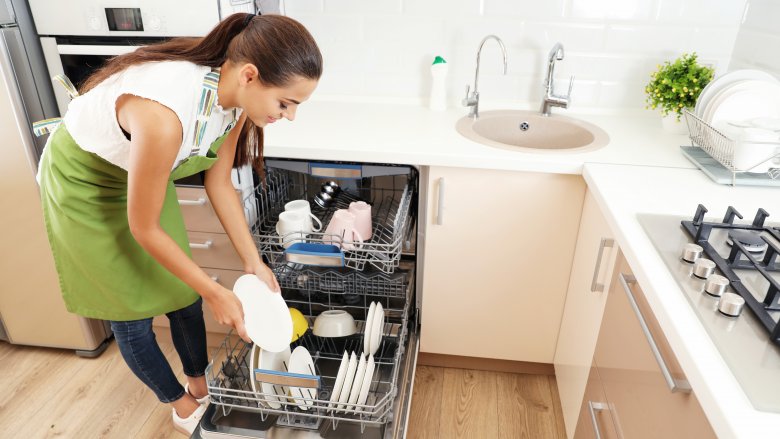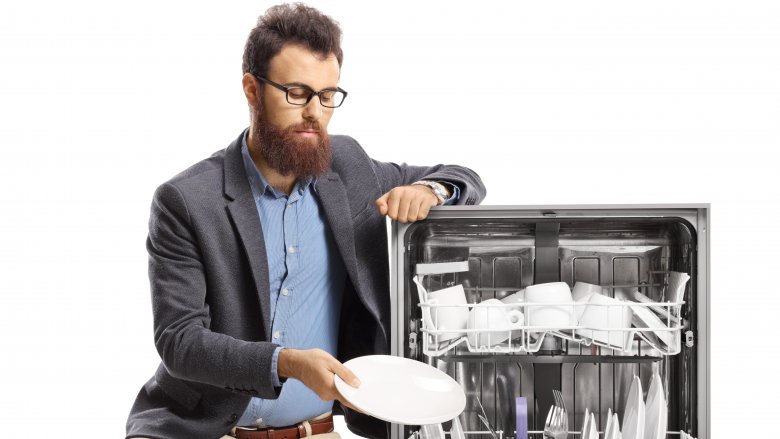The Correct Way To Load A Dishwasher
Dishwashers are a fantastic invention of modern convenience, but they take a lot of abuse. Over time, all that cleaning can take its toll. Incorrectly loading your dishwasher won't only result in dishes that are still dirty, but may damage the appliance and leave you with a hefty bill from the repair technician. If your dishes seem to regularly come out of the dishwasher only half clean, there's a good chance that it's not your appliance's fault, but how you're loading it.
Loading a dishwasher certainly isn't rocket science, but a lot of people get it wrong. Consider putting these proper dishwasher loading tips into practice or get ready to be your repair guy's favorite customer for a long, long time.
Follow these steps when loading your dishwasher
First off, dishwashers aren't magic and you can't load them up with food that's been caked on for two weeks and is now as hard as cement. Thankfully, most of today's modern dishwashers don't require you to pre-rinse the dishes, but Consumer Reports does recommend that you scrape food off your plate first. Plates should be loaded on the bottom rack, normally towards the front and standing up. Your dishwasher also likely has a basket on the bottom rack for silverware. Load all your silverware with the handles facing up so that you don't accidentally cut yourself on a sharp blade when unloading.
Larger cookware such as pots and baking dishes should be angled downward on the bottom shelf, but not facing flat down. You don't want to block the water from spraying up to the top rack where you'll load glasses and smaller dishware. Everyone wants to fit as many dishes in their dishwasher as possible, but avoid nesting dishes and utensils inside each other, as this can prevent everything from getting an even cleaning (via Whirlpool).
Finally, dishwashers do have a water heating coil, but Richie Isaacson of This Old House recommends running hot water through your kitchen sink before you turn your dishwasher on. "If you purge all the cold water out of the line first... then you'll be starting with nice hot water," Isaacson advised. Your dishwasher won't have to work as hard and the soap will dissolve quicker so it can clean those dirty dishes.

